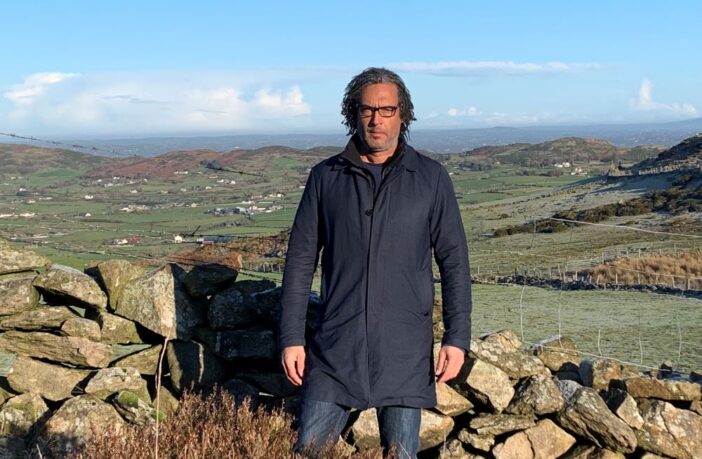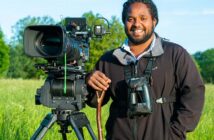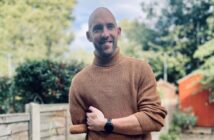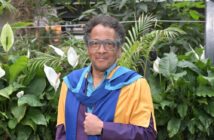The turbulent history of how Great Britain evolved is dissected in an intriguing Open University/BBC co-production – Union with historian David Olusoga – which reaches the small screen tonight (Monday 2 October).
The four-part series airs on BBC Two at 9pm and charts the history of the Union from the 1600s – a century defined by religious and cultural divisions – to 1707, when Scotland joins with England and Wales to form Great Britain. The full series will be available on BBC iPlayer.
Dr Dan Taylor, Lecturer in Social and Political Thought at the OU, and one of three OU academic consultants, said:
“What makes Union thrilling and rather different is that it’s not afraid to ask difficult questions about what united disparate peoples in the past on these islands, whether it was religion, empire, war, class, or something else.”
Dan, who has also cycled across the British Islands and discovered what he describes as “the fractured and fragmented identities along the way”, added:
“For me, one thing in the series I will not forget is the story of the famine roads in Ireland. Despite having Irish roots I’d never come across these before. It is a deeply shocking episode and one that shook me out of a complacent lack of knowledge about Ireland.”
Gerry Mooney, OU Emeritus Professor of Scottish Society and Social Welfare, said:
“I was very keen to be involved in the series when the project was first announced. The primary reason for this is that it directly relates to different aspects of my ongoing research and interest in the demand for Scottish Independence, the politics of British Nationalism and also the wider issue of the potential fragmentation or the break-up of the UK.”
He says he hopes it encourages viewers to think differently about the Union:
“The arguments and debates around the future of the UK today reflect a very turbulent past – often very contested, fought over and violent.
“It is the enduring legacies of that past that shape the different countries of the UK today, and Ireland too, and which also underpin debates around Scottish Independence, Irish re-unification, the demand for more Welsh devolution and, to an extent, Welsh Independence, and arguments for an English Parliament and Brexit.”
Staff Tutor and Senior Lecturer in History, Dr Helen O’Shea, who completed the OU team, said:
“It’s been such a pleasure to work on this production with Dan and Gerry over the last couple of years. In particular, I’ve felt very lucky to be able to contribute to the core themes and ideas surrounding Union that are intrinsic to the Irish context.
“I’d find it really difficult to point out just one part of the series as my favourite but given the current pressing debate on the role social media plays in fostering societal unity or stoking disunity, I think viewers will be intrigued to learn just how crucial mechanised printing technology, mass literacy and mass communication were in the creation of nations and national identity during the late 18th and 19th Centuries.”
This series was commissioned by Broadcast and Partnerships and is supported by the Faculty of Arts and Social Sciences, with particular relevance to R23 | BA (Hons) in Social Sciences, Q01 | BA (Hons) History and Q97 | BA (Hons) History and Politics.
- Commissioned by Dr Caroline Ogilvie, Head of Broadcast & Partnerships
- Academic Consultants: Prof. Gerry Mooney, Dr Helen O’Shea and Dr Dan Taylor
- Media Fellow: Dr Zoë Walkington and Dr Joanna Paul
- Broadcast Project Manager: Matthew Ray
- Broadcast Platforms and Public Engagement Manager: Chris Belson
Supporting Online Content:
Visit our Broadcast & Partnerships site, where you can find extensive resources and information on topics related to this series, six fascinating stories exploring the unsettled history of the Union.
Picture: Francis Welch, Wall to Wall Media



